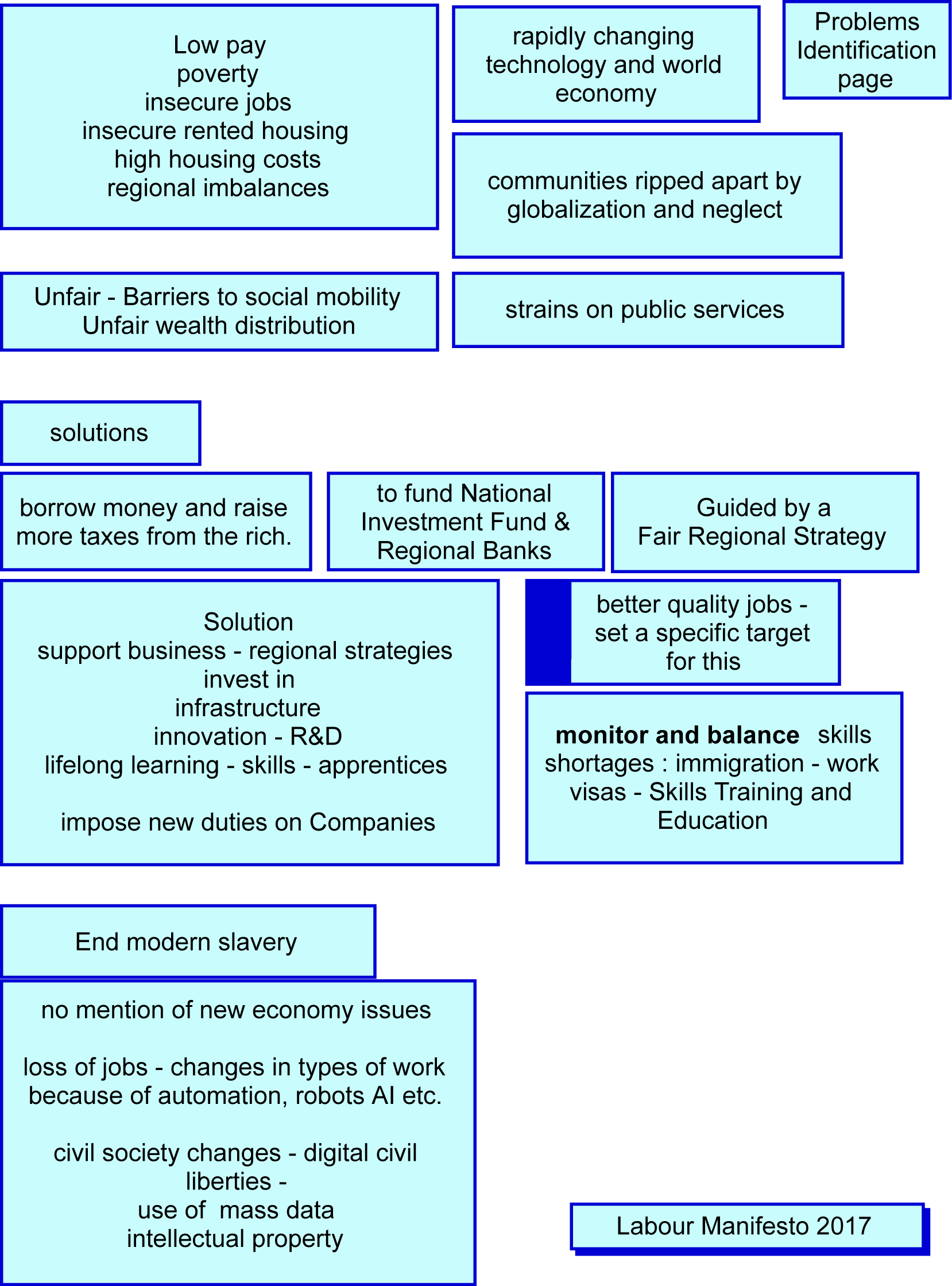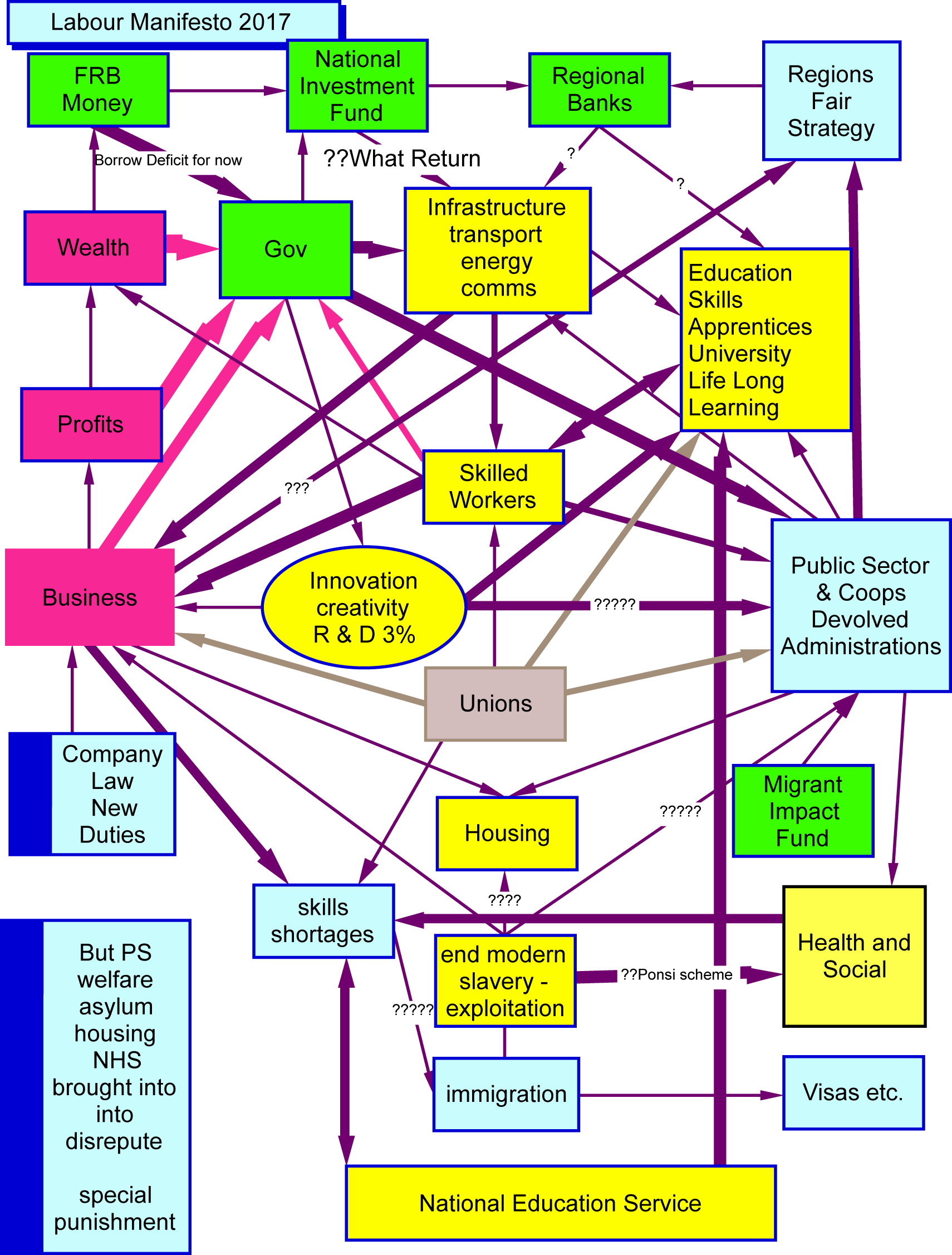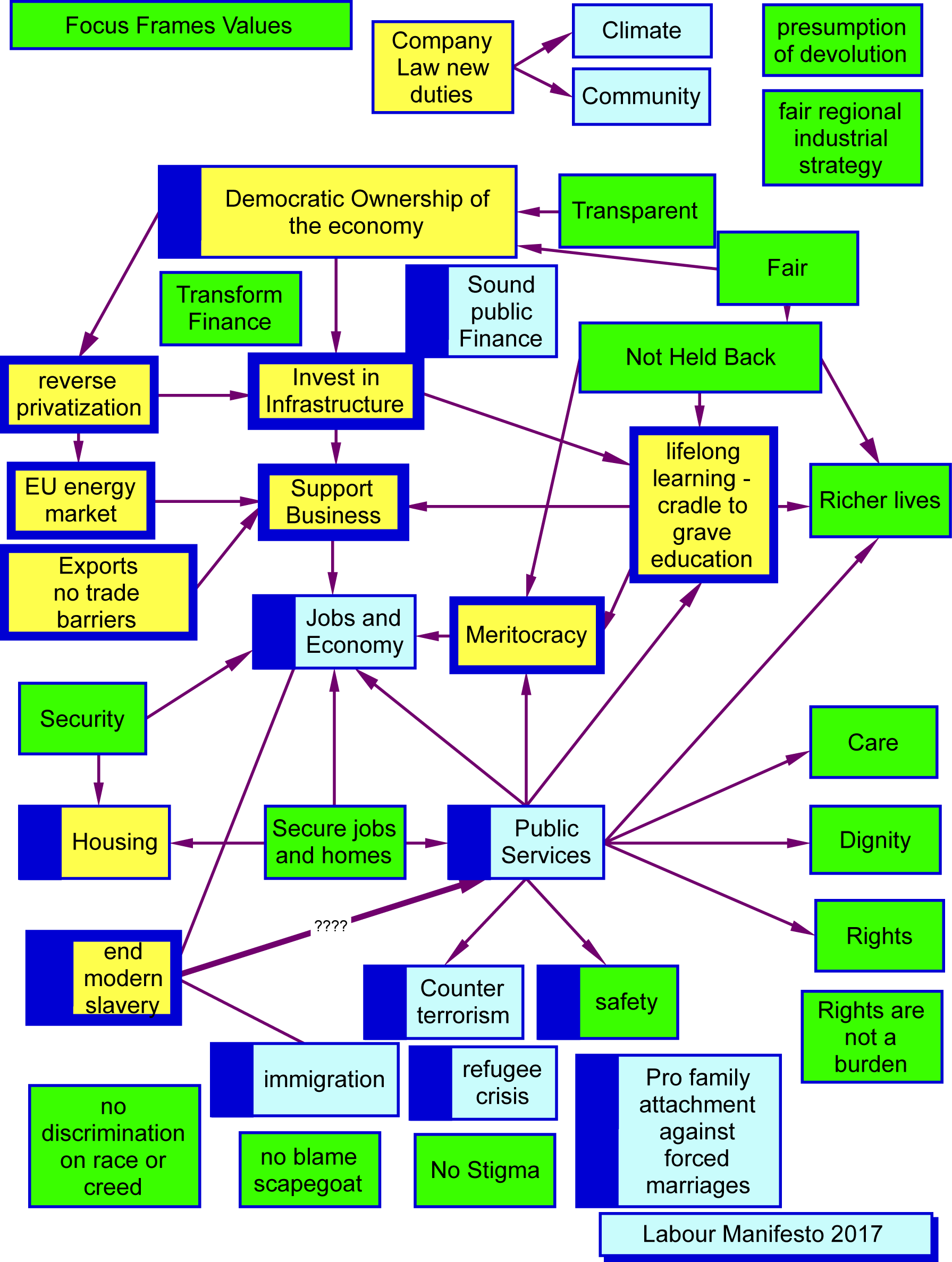|
The Labour Manifesto 2017 is not very big, has a lot of empty space and avoids a lot of questions that are crying out to be asked, but what there is is actually pretty clear. Much clearer than the Tory Manifesto. As a consequence it only took me about an hour to read it and to represent what I understood it to be saying in this Discussion Map. Labour recognize that in order to succeed in the brave new world, we must stimulate the economy via a major investment in Infrastructure and Education (Skills, Apprenticeships, University and Lifelong learning) We must also balance the economy regionally - through a Fair Regional Strategy. They plan to raise more money to pay for this by increasing taxes on business profits and wealth, and by borrowing a lot more funny money (how much? how will it be paid back?) from the Fractional Reserve Banking system. This money will be put into a National Investment Fund (run by who? how?) which will fund this investment directly and indirectly through new Regional Banks (run how? how will it decide what to invest in - what is good value and what isn't? which investments will have the best probable consequences for the economy and for local communities, how will it resist corruption?) What it doesn't explain is how the lenders of that money would be recompensed for the use of this money. Sounds a bit like the PFI disaster all over again.
|
||
|
|
|
|
|
This massive investment will result in a skilled work force - hopefully. The government will also stimulate innovation, creativity and Research & Development (for business - but no mention of a need for innovation or creativity in the public sector). This aligns with the economic idea that our post industrial economy has reached a stagnant equilibrium - the strategy of importing cheap labour and hiding in the EU protection racket has predictably run-out-of steam - to survive in the new world we need to move to a strategy based on innovation, excellence, (real work, real money, self-suffucuency and sustainabliity - just joking - not there yet), and free trade. Good stuff. The fear that the economy will be starved of skilled and unskilled workers if we control our borders is resolved (obviously) by a system for evaluating skills shortages and 'meeting that legitimate need' by an intelligently balanced combination of work visas and training. The Unions will be heavily involved in the new education system, the skills shortage / immigration / training system - and the development of the regional development strategy. HUM Communities torn apart by 'immigration and political neglect' will be listened to, will be considered in the new fair regional policies and will be helped by a Migrant Impact Fund. Modern slavery and exploitation will be ended. Housing will be .....not much analysis of what the problems are, what the phrase the 'market is broken' is supposed to mean, how the different problems arose or what to do to solve each aspect of the problem. Company law will be amended to impose new duties in relation to community and the environment ?????? The box bottom left is my own reaction - that the public sector's handling of the; NHS, welfare, education, housing, asylum, immigration, prisons, etc., is now widely regarded as incompetent and self-serving - more concerned with self-perpetuation and ideology than serving the public. These pooling and sharing institutions were the crowning glory of our civilization - but they depend on public support and commitment. Unfortunately they have been brought into disrepute to the extent that the general public now see them as a problem - as the enemy. Bringing the public sector into disrepute should be a special class of crime - to reflect the importance of the institution these people have damaged. We should institute a Zero tolerance policy for cover-ups and incompetence. I think the Labour Party's uncritical belief in the role an unreformed public sector would play in their plan for the future is misguided. We need innovation education and R & D for the public sector as well as for the business economy. |
||
|
Like all our models, Labour's models are shaped by an underlying set of biases, beliefs, values that cause them to focus on some aspects of the world and ignore others. What can we figure out about Labour's underlying biases. Here are some of the statements about the problems they are concerned about and the solutions they are inspired by. |
||
 |
||
|
And here are some clues to their values - the values that frame their view of reality - the values that determine what to include and what to ignore in their model of reality. |
||
|
|
||

